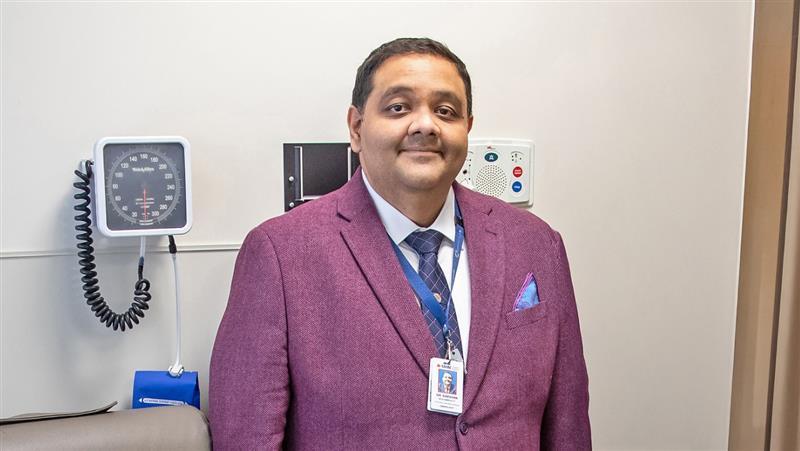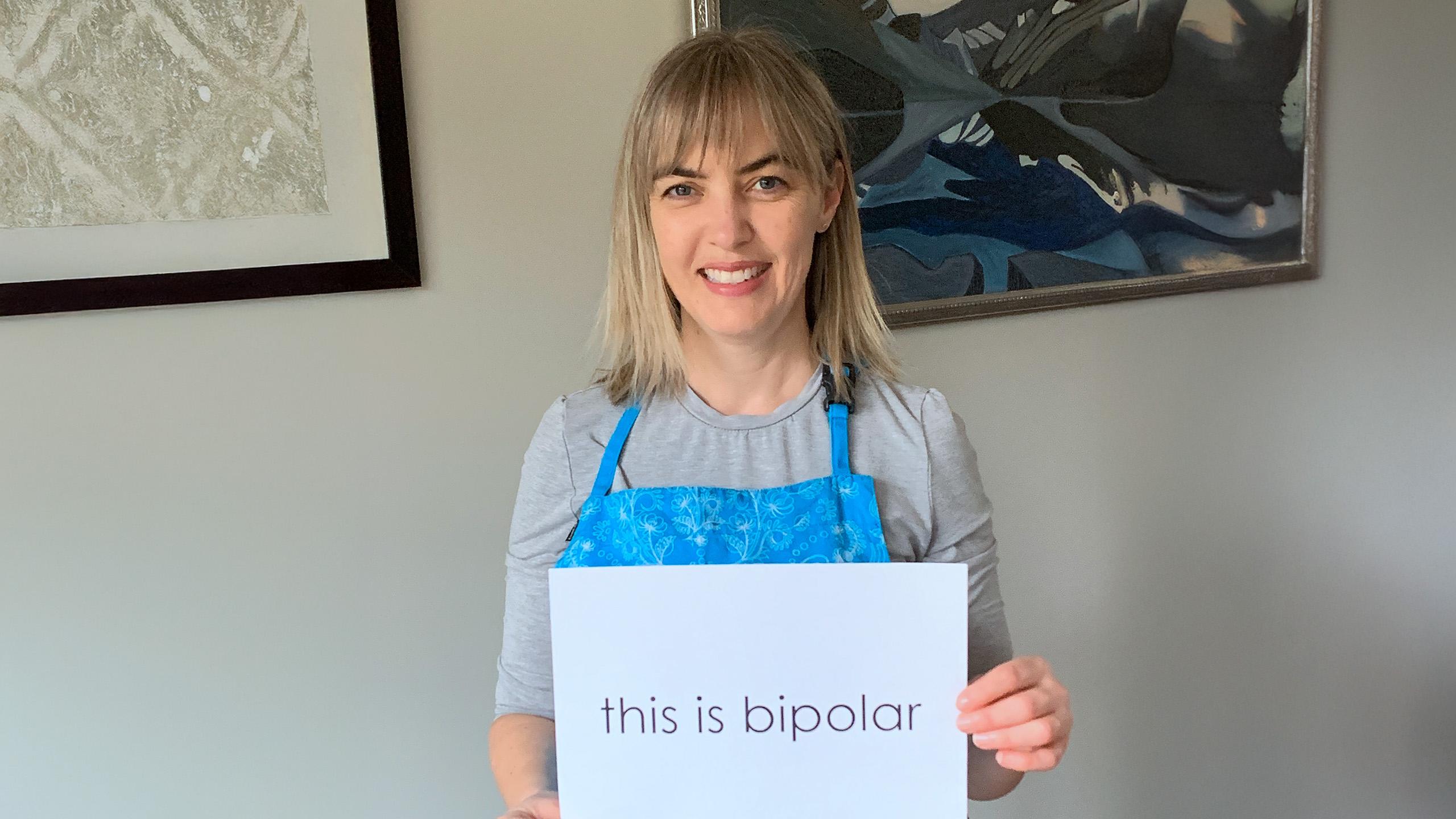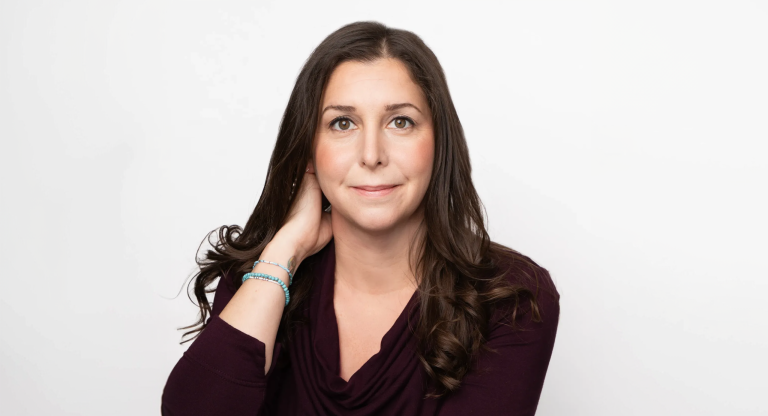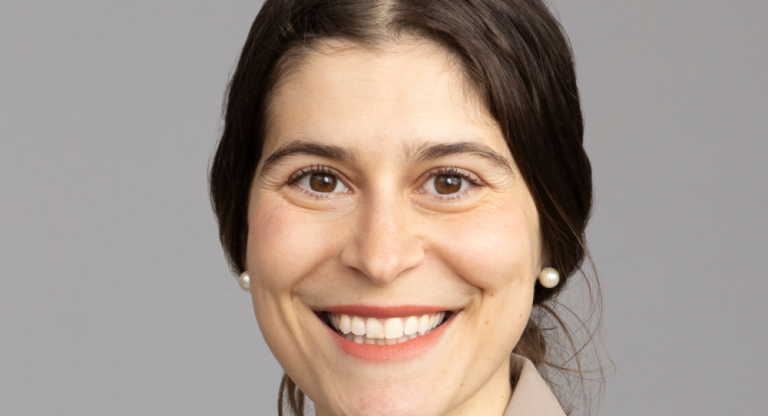Living with inflammatory bowel disease

“Since the moment I was diagnosed at 12 years old, there’s not been a day I’ve forgotten I have ulcerative colitis,” says Lucie Andlauer, patient advocate and IBD donor.
Lucie is one of more than 320,000 Canadians living with inflammatory bowel disease (IBD)1 — a condition where the lining of the gastrointestinal tract becomes inflamed, resulting in abdominal pain and cramping, severe diarrhea, rectal bleeding and diminished appetite.
It’s a disease her family is all too familiar with. Out of her five sisters, three have Crohn’s disease and Lucie has ulcerative colitis (UC). Crohn’s disease and UC are two of the most common types of IBD and can be debilitating for the people living with them, impacting everyday activities like eating, drinking and socializing.
Lucie was in and out of the hospital for decades due to complications related to UC — for dehydration, iron infusion and even surgery. Lucie recalls countless times where she sat in the hospital feeling completely depleted because of her UC. The care she received from Dr. Ken Croitoru, a gastroenterologist at Sinai Health, helped her find hope during her care journey.
“Ken completely changed my life,” says Lucie. “He made sure that we sat down and discussed every recommendation. We tried different things and the second it didn’t work, his follow up was there.”
Investing in research to find a cure for IBD
In addition to providing life-changing care at Sinai Health, Dr. Croitoru is also the lead investigator of the Genetic, Environmental, Microbial (GEM) Project, a global clinical study coordinated out of the IBD Research Group and Zane Cohen Centre for Digestive Diseases (ZCC) at Mount Sinai Hospital. Funded by Crohn's and Colitis Canada, the study follows healthy individuals who are at a higher risk for developing the disease — families like Lucie’s who have a history of the illness — in the hopes of finding genetic markers that may predict, prevent and ultimately cure IBD.
Lucie’s personal connection to this disease and her gratitude for her care inspired her and her family to give back. In September 2024, the Andlauer family made a $3-million gift to support Dr. Croitoru’s research.
“Everything we do for UC and Crohn’s right now is after the disease has developed,” says Lucie. “We need the research to find out what genetic and environmental markers to look out for, so we can find a way to manage this illness or take steps to prevent it in the first place.”
The GEM Project has been looking for answers since it launched in 2008, and they’ve made significant breakthroughs in understanding factors that impact the onset of the disease. Their most recent discovery found that growing up with a dog was associated with a decreased risk of developing Crohn’s disease. This finding is shining new light on how environmental factors could affect how the disease is triggered. The gift from the Andlauer family will accelerate ongoing efforts to predict the risk of Crohn’s and test interventions to help prevent the disease from starting.
“My family and my children want to be part of giving back to the community. We want to make a difference,” says Lucie. “It was important to us that Canada remains an epicentre of research and efforts to find a cure.”
Learn more about how Canadian research is pushing the boundaries of IBD discovery.
Raising her voice and funds for groundbreaking research
There haven’t always been the resources there are today. Lucie reflects back to when she was first diagnosed as a child, and how she struggled to cope early on because she didn’t have access to information or mentorship.
“When I was diagnosed, there was not a lot of resources. People didn’t talk about it because I think they felt bowel disease was an embarrassment,” says Lucie. “But it’s a lot scarier to keep it to yourself and finding resources can be overwhelming.”
That’s why she decided to raise her voice — to open the conversation and help others find better ways to cope with the illness. Today, Lucie is a mentor and advocate for many living with UC and Crohn’s. Funding research is how she hopes to continue helping others living with IBD for generations to come.
Lucie’s ongoing commitment to raising funds and awareness for IBD doesn’t stop with her personal contributions. She’s also working hard to encourage others to donate, including hosting an event in Toronto to raise money for the GEM Project.
“I’m using my voice to get the message out about the impact of bowel disease,” says Lucie. “At the end of the day, the more we can get people to acknowledge and fund research into IBD, the faster we’ll get results”
Donate today and join Lucie and Dr. Croitoru in their quest to find a cure for IBD. Please select Other from the gift designation dropdown menu and enter GEM Project as the desired gift designation.
1Coward, S., Benchimol, E. I., Kuenzig, M. E., Windsor, J. W., Bernstein, C. N., Bitton, A., Jones, J. L., Lee, K., Murthy, S. K., Targownik, L. E., Peña-Sánchez, J. N., Rohatinsky, N., Ghandeharian, S., Im, J. H. B., Davis, T., Weinstein, J., Goddard, Q., Bennett, J., Caplan, L., Bergevin, M., … Kaplan, G. G. (2023). The 2023 Impact of Inflammatory Bowel Disease in Canada: Epidemiology of IBD. Journal of the Canadian Association of Gastroenterology, 6(Suppl 2), S9–S15. https://doi.org/10.1093/jcag/gwad004










